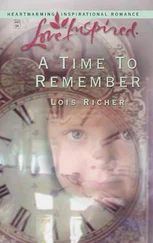Alexander Todd - A Time to Remember
Здесь есть возможность читать онлайн «Alexander Todd - A Time to Remember» весь текст электронной книги совершенно бесплатно (целиком полную версию без сокращений). В некоторых случаях можно слушать аудио, скачать через торрент в формате fb2 и присутствует краткое содержание. Город: Cambridge, Год выпуска: 1983, ISBN: 1983, Издательство: Cambridge University Press, Жанр: Химия, Биографии и Мемуары, на английском языке. Описание произведения, (предисловие) а так же отзывы посетителей доступны на портале библиотеки ЛибКат.
- Название:A Time to Remember
- Автор:
- Издательство:Cambridge University Press
- Жанр:
- Год:1983
- Город:Cambridge
- ISBN:0 521 25593 7
- Рейтинг книги:3 / 5. Голосов: 1
-
Избранное:Добавить в избранное
- Отзывы:
-
Ваша оценка:
- 60
- 1
- 2
- 3
- 4
- 5
A Time to Remember: краткое содержание, описание и аннотация
Предлагаем к чтению аннотацию, описание, краткое содержание или предисловие (зависит от того, что написал сам автор книги «A Time to Remember»). Если вы не нашли необходимую информацию о книге — напишите в комментариях, мы постараемся отыскать её.
A Time to Remember — читать онлайн бесплатно полную книгу (весь текст) целиком
Ниже представлен текст книги, разбитый по страницам. Система сохранения места последней прочитанной страницы, позволяет с удобством читать онлайн бесплатно книгу «A Time to Remember», без необходимости каждый раз заново искать на чём Вы остановились. Поставьте закладку, и сможете в любой момент перейти на страницу, на которой закончили чтение.
Интервал:
Закладка:
(1) I must have complete authority as head of department to reorganise and develop the University Chemical Laboratory. Whether physical chemistry remained with the rest of chemistry or hived off as a separate department was of no great importance to me at the moment. (I was almost certain, of course, that if Norrish were given the chance he would go for a separate department - as indeed he did. Whether this separation was wise is arguable, but, in practice, it dealt reasonably satisfactorily with the situation as it was in 1944.)
(2) Queen Mary College and St Bartholomew's must go back to London and the uranium work must be transferred to some other department or, better, to a government laboratory where it should have been in the first place.
(3) A post must be provided for A. R. Gilson to act as Laboratory Superintendent in charge of all non-academic affairs.
(4) Gas lighting should be abolished and replaced by electricity, benches provided with adequate power facilities, and money provided to equip the laboratories as quickly as possible to modern standards.
(5) I would need an undertaking that the university would give the highest priority to building a new University Chemical Laboratory on a fresh site as soon as possible after the war. I knew that similar priority had been asked for an extension to the University Engineering Laboratory, and I had to insist that a new chemical laboratory be regarded as of similar urgency.
(6) I would require a minimum of one academic staff position forthwith for my colleague Dr B. Lythgoe, who was then a Lecturer in Manchester and a key figure in my nucleotide coenzyme group.
Thereupon I returned to Manchester and awaited results.
There was naturally a little delay before the Board of Electors could meet and the university's attitude to my demands could be ascertained. But within a few weeks, after a further check by the Secretary General to be sure I had been properly understood, I was informed that all my conditions would be met and I was invited to take the chair. I accepted, although I remember wondering very much whether I had done the right thing. But the die was now cast, and things began to move quite quickly. I soon found myself in receipt of letters from heads of several colleges in Cambridge inviting me to accept a Professorial Fellowship. As I knew literally nothing about any of the colleges, except that they varied in size and I wanted, on the whole, to be attached to a medium-sized one I consulted my father-in-law. As a result I finally chose to go to Christ's because it was recommended to me as a smallish college with a decent reputation and one which had, in Charles Raven, a notable figure as Master. It is only fair to add that the presence of J. T. Saunders, the Secretary General, as a Fellow was an added attraction. Not only did I like Saunders - he and I became very good friends - but it seemed to me that, in battles which I might well have with the university authorities, the presence of the Secretary General as a Fellow of my own college could hardly be disadvantageous!
Since I had agreed to take up the Cambridge appointment on 1 October 1944, which was little more than six months ahead, we had to get busy at once in Manchester to prepare for the move. Ralph Gilson examined the Cambridge laboratories in some detail and, when he had recovered from the initial shock, set on foot their re-equipment and got under way the plans for removing the gas lighting and doing some minor structural alterations which were necessary. It was, of course, very difficult to get anything done in those days, since virtually everything was directed to the war effort and everyday civilian needs had to go largely unsatisfied even when, as in our case, the necessary money was available. But we were lucky, partly because of the private arrangements we had made with equipment manufacturers in Manchester, but, more particularly, because we were involved in the research effort on penicillin. The word penicillin was a real talisman at that time, and we used it to the full to get both government grants and - much more important - permits and priority for alterations to the laboratory. I then discovered that almost all the members of my personal research group in Manchester (other than those who had completed their course of research and had accepted positions in industry) wished to accompany me to Cambridge. This I found very touching because in some cases such a move would mean prolonging their Ph.D. course by a year, and for all of them it would be a great upheaval; I don't think I had really appreciated until then the loyalty and enthusiasm of the group and their attachment (however undeserved) to me personally. The research students concerned were: F. R. Atherton, J. Baddiley, A. Holland, G. A. Howard, H. T. Howard, R. Hull, G. W. Kenner, L. E. Lyons, D. H. Marrian, P. B. Russell, P. Sykes, A. Topham, W. S. Waring and N. Whittaker. In addition there were, of course, Dr B. Lythgoe and A. R. Gilson moving with me and Barbara Thornber. Barbara had taken her degree in 1943 and asked me then what she should do as she didn't think research would suit her - indeed, she confessed that her main reason for electing to do chemistry at Manchester had been simply that her school record in chemistry was rather better than in other subjects. She helped me out by taking some training in analytical work for some months and then doing micro-analysis during a period when our professional micro-analyst had gone down with tuberculosis. When she heard I was going to Cambridge she said she wished to go too - which was not surprising as she was a popular member of the department and much identified with the group of research students named above, several of whom were her contemporaries. The problem was - what kind of opening was there for her in Cambridge? I said I would need a secretary, and she said that, if I gave her three months to learn something at a secretarial school, she would take the job. I said 'Done!' and she not only got the essentials of the job in three months, but then came to Cambridge and became for seven years the best personal assistant and secretary I have ever had. H. T. Openshaw, whom I had appointed to a staff position in Manchester a few years before, also wished to come to Cambridge but, as there was no suitable staff position available there, he finally decided, to our mutual regret, to remain in Manchester.
I should mention at this point that the people named above including Openshaw, but with the exception of Holland (whose present whereabouts is unknown to me) and Waring, represent the core of a remarkable dining-club known as the Toddlers Club. The club was formed in 1971 at the instigation of Ralph Gilson and its members dine together annually; membership is limited to myself and those who either moved with me from Manchester to Cambridge, or had arranged to work with me at this time. (These latter were A. W. Johnson [Deceased 5 December 1982] from Imperial College via wartime work in I.C.I., C H. Hassall from Dunedin, New Zealand and J. Davoll, a Cambridge undergraduate.) Although now widely scattered in the country and abroad, the Toddlers (eighteen in all) maintain close contact, and all gather in Cambridge for the annual dinner in May. So far one member (G. W. Kenner) has been lost by death, and only one has been added - Herchel Smith, who did his undergraduate work in Cambridge and, like Davoll, joined my group there.
I left Manchester after much hesitation and with much regret; the University of Manchester will always retain a very firm place in my affections. After all I was a very raw youngster when I was appointed, and, looking back, I think the university, and especially its Vice-Chancellor, were taking a considerable risk when they chose me in preference to at least two other well-known chemists (both my seniors) whom I later discovered they had also interviewed. As it turned out, however, and thanks in no small measure to the help I had from everyone in authority and the loyalty and friendship of my staff and students, I think I justified their faith in me. I learned a tremendous amount during those six years - in fact I grew up. I learned how to organise and administer a department without getting bogged down to the extent of allowing administration to interfere with research; I learned too how to choose a research topic and, having done so, to pursue it without allowing myself to be deflected into the interesting little side alleys which always turn up, and which have been the undoing of so many. In a way research is like golf- you must keep your head down and your eye on the ball!
Читать дальшеИнтервал:
Закладка:
Похожие книги на «A Time to Remember»
Представляем Вашему вниманию похожие книги на «A Time to Remember» списком для выбора. Мы отобрали схожую по названию и смыслу литературу в надежде предоставить читателям больше вариантов отыскать новые, интересные, ещё непрочитанные произведения.
Обсуждение, отзывы о книге «A Time to Remember» и просто собственные мнения читателей. Оставьте ваши комментарии, напишите, что Вы думаете о произведении, его смысле или главных героях. Укажите что конкретно понравилось, а что нет, и почему Вы так считаете.










